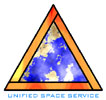originally published in The Elkhart Truth
October 16, 1982
You survived the summer!
You communicated with “E.T.”, evaded “”The Wrath of Khan,” and overcame the “Poltergeist.” Flying “Firefox” didn’t daunt you, nor did combat with “Conan the Barbarian.” You stood shoulder-to-shoulder with “TRON” and slogged through Los Angeles with the “Blade Runner.” You even divined “The Secret of NIMH.”
Such an unprecedented string of quality fantasy and science fiction films has doubtless left you both ecstatic and exhausted. If you’re wondering what to do while resting up for Jim Henson’s “Dark Crystal” and George Lucas’ “Revenge of the Jedi,” wonder no more. Should you confess to seeing and enjoying any of the movies listed above, then the world of written fantasy and science fiction has something for you.
A look at recent releases suggests the range of’ modern SF (speculative fiction). Anne McCaffrey, who won herself a devoted following with several enchanting novels about the dragons of Pern, explores a different ‘kind of enchantment in “Crystal Singer” (Del Rey, $2.95). Rejected as a diva, Killashandra seeks both acceptance and refuge among the miners of crystal on Ballybran—crystal which powers starships and, it is said, possesses those who hear its song.
Robert Heinlein’s “The Number of the Beast” is in paperback after a best-selling performance in hardback, but its hardly the book strangers to SF or Heinlein should begin with. A much better choice is Heinlein’s new novel “Friday” (Holt, Rinehart &Winston, $14,15), which tracks a troubled bio-engineered woman through an even more troubled near-future Earth. Spicy, gritty, and full of provocative observations on “human” nature, “Friday” shows why Heinlein is considered by many to be the very best writer in all of SF.
If your tastes run to whodunits, Barney Cohen and Jim Baen offer one played out in orbit around the Earth in their collaboration ‘”The Taking of Satcon Station” (Tor, $2.95). Like any aging “city,” Satcon Station has fallen on hard times, becoming the perfect place for the mob and other assorted lowlifes to horn in–and the worst possible place for a Fleet Agent to track down a missing girl.
Commendably, SF editors and publishers try to keep the best of the past alive and in print. Among the most indefatigable of the preservationists are the team of Isaac Asimov, Martin Harry Greenburg, and Charles Waugh; they scour the ephemeral SF magazines for the top short fiction for their “theme” anthologies. The two latest are “Dragon Tales” and “The Last Man on Earth” (Fawcett, $2.95 each). Each offers a dozen or more stories, plus Asimov’s short but knowledgeable introductions and notes on the authors.
Though SF has grown up, with more adult themes and more sophisticated ideas, it hasn’t forgotten its roots, or its young readers. E.E. “Doc” Smith’s classic “Lensman” series almost single-handedly created the space-opera tradition which led to “Star Wars.”All six books, dated only by their stereotyping of women, are again available to a new generation (Berkley $2.50). And Lester Del Rey’s novels in Ballantine’s Science Fiction Adventure series, such as “Attack From Atlantis” ($1.95), are enough fun to coax your teenager away from the video arcade—and popularly priced, to boot.
Whether it’s contact with the mysterious, the awesome, or the alien you’re looking for, you can find it in the Portable Universe—an SF book. Enjoy!
–Michael P. Kube-McDowell is a member of The Truth staff.

